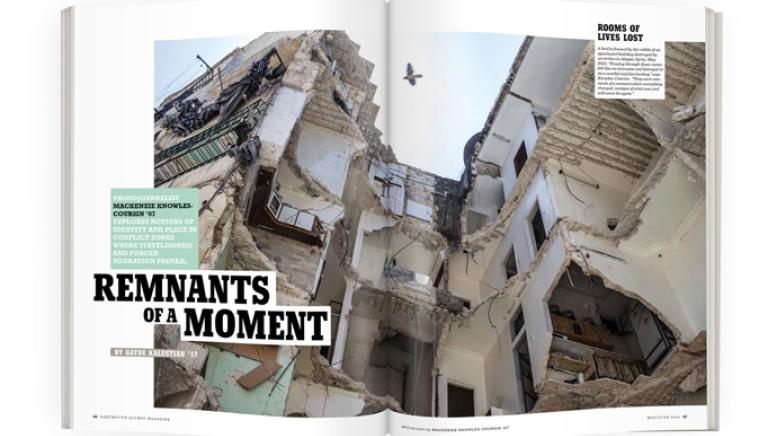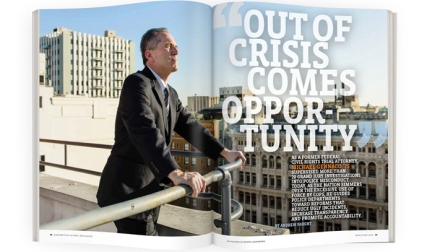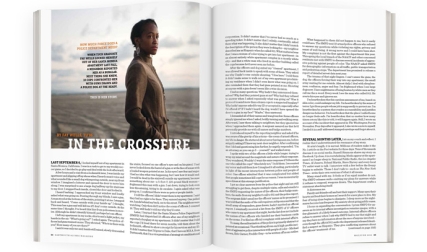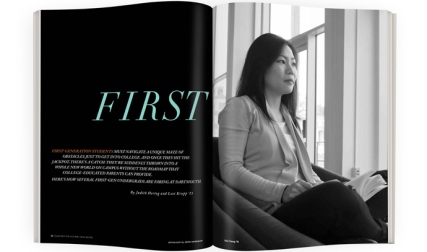View full article with Knowles-Coursin’s images in the DAM archive.
In early March photojournalist Mackenzie Knowles-Coursin traveled to Greece and Macedonia, where he witnessed 10,000 refugees huddled in tents waterlogged by the half-winter, half-spring storm that rained down on them. He was there to photograph displaced people who have not been allowed to go forward—and who have no way to turn back.
“It’s still really dire, and there’s a lot of sadness, despair and confusion,” Knowles-Coursin says. “But people are still able to smile at some points.”
His images and reporting, which have been featured in publications such as The Wall Street Journal, The New York Times, Time magazine and Al Jazeera, reveal as much about the tragedies that take place in conflict zones as they do about the human capacity to endure. “The stories that interest me are the ways that daily life continues and the way families continue to grow, people get married, love continues to persist—all in the midst of displacement and war,” Knowles-Coursin says.
“His photographs are evocative, yet they do not romanticize,” says Wall Street Journal director of photography Lucy Gilmour. “He always seeks a real connection with the people whom he is photographing and they, in turn, let him document their situation and lives in a rich and thoughtful way.”
Based in Istanbul, Turkey, Knowles-Coursin travels extensively. In 2012 he traveled to several cities in Syria, his first visit to an active war zone. There he captured images of people who were managing to carve out some sense of normalcy despite unbearable circumstances, such as a mother, in need of groceries to cook a meal for her family, darting across a street where snipers regularly struck. “For her, life had to go on,” says Knowles-Coursin. “These people are no different than any other people in the world. They are mothers and daughters, fathers and brothers.”
While growing up in New Hampshire, Knowles-Coursin received his first camera, a Pentax MX, as a gift from his grandfather at an early age. Following a childhood full of travel, he came to Dartmouth with hopes of earning a medical degree. Turned off by the emphasis on illness management rather than prevention, he switched his major to geography. Following graduation he worked as a district health advisor with the Access Project in Rwanda, a nonprofit focused on improving access to healthcare.
But Knowles-Coursin was still drawn to the world of photography. His mother’s death, shortly after graduation, led to some introspection. “That changed a lot. I got to feel how short and unpredictable this all is, and I started to realize, damn, I better get to letting myself chase what I want,” he says. “The Rwanda work was fine, but I wasn’t jazzed by it.”
He spent several months talking to photographers and figuring out how he might “jump in.” After learning that the Associated Press was seeking a stringer in South Sudan, he took the plunge, walking away from his job in Rwanda and through sheer will getting the AP position. “I think that may be the scariest thing I’ve done,” he says.
Knowles-Coursin shares his images, reporting and reflections on his website, mkcimage.com. “Photography makes you become cognizant of all these different lives that are being lived simultaneously,” he said. “When I go home to New Hampshire, I’m still thinking of people I’ve met along the way.”
View a slideshow featuring more of Knowles-Coursin’s images.




